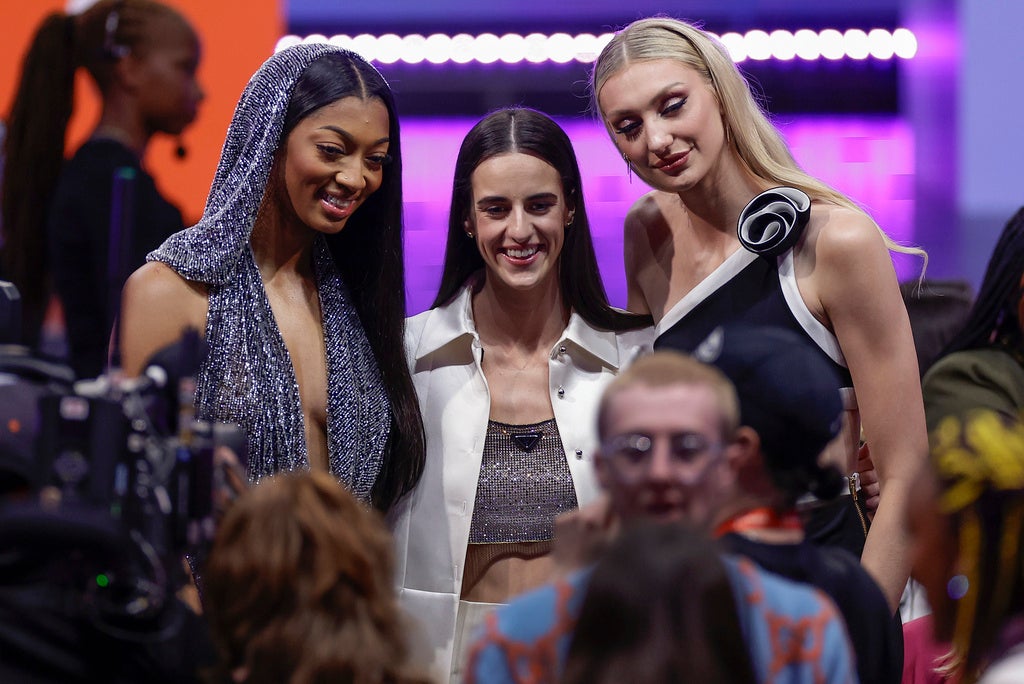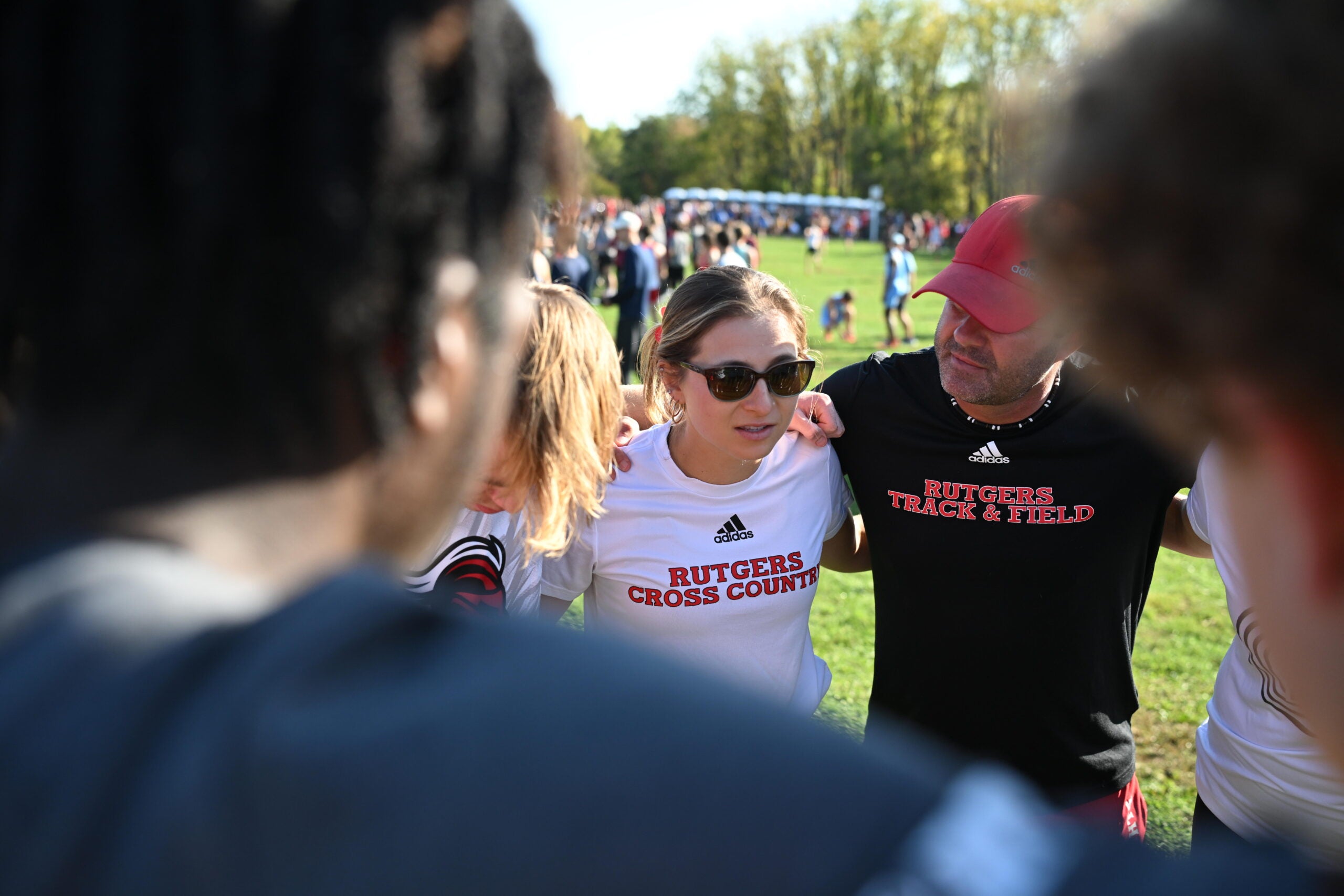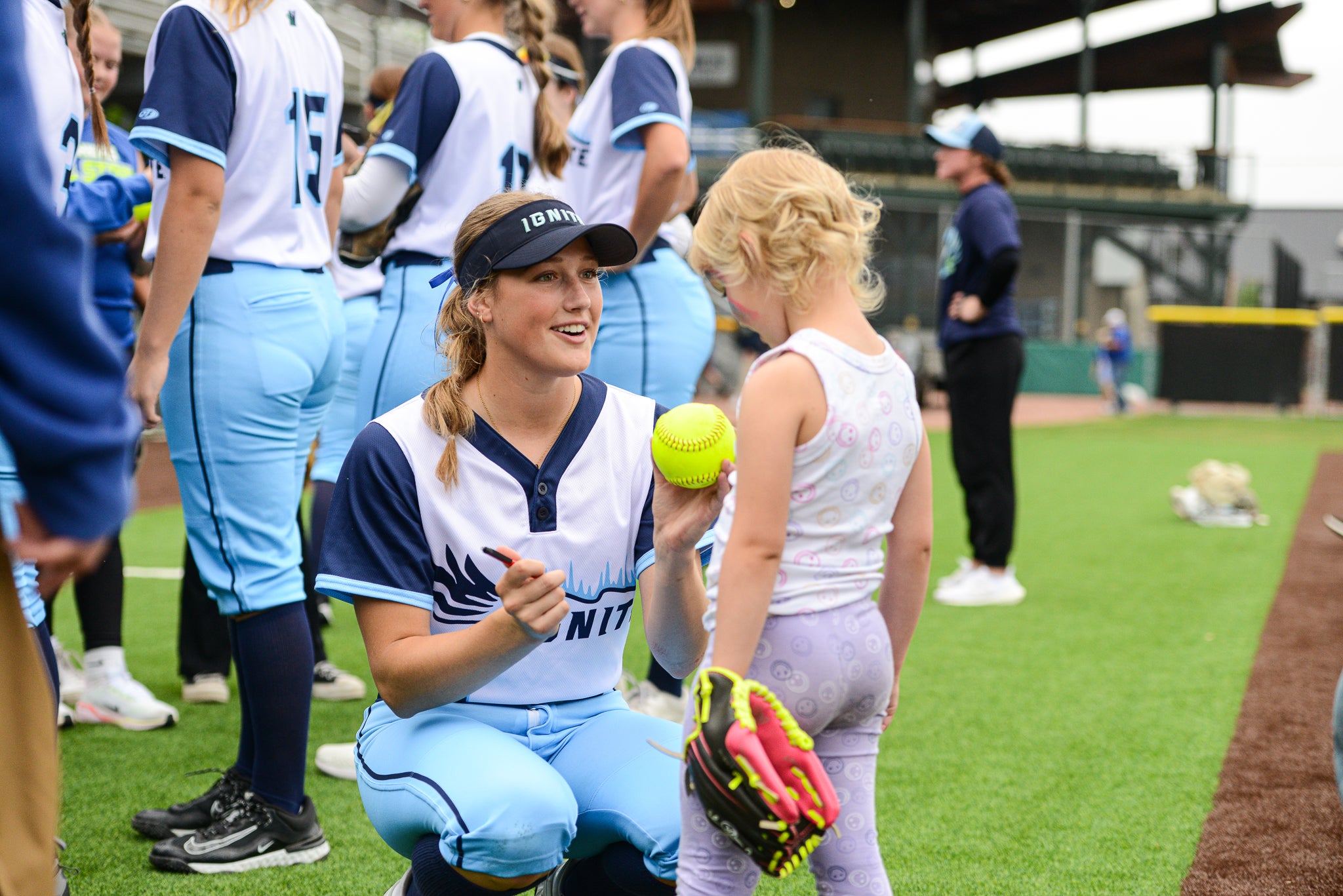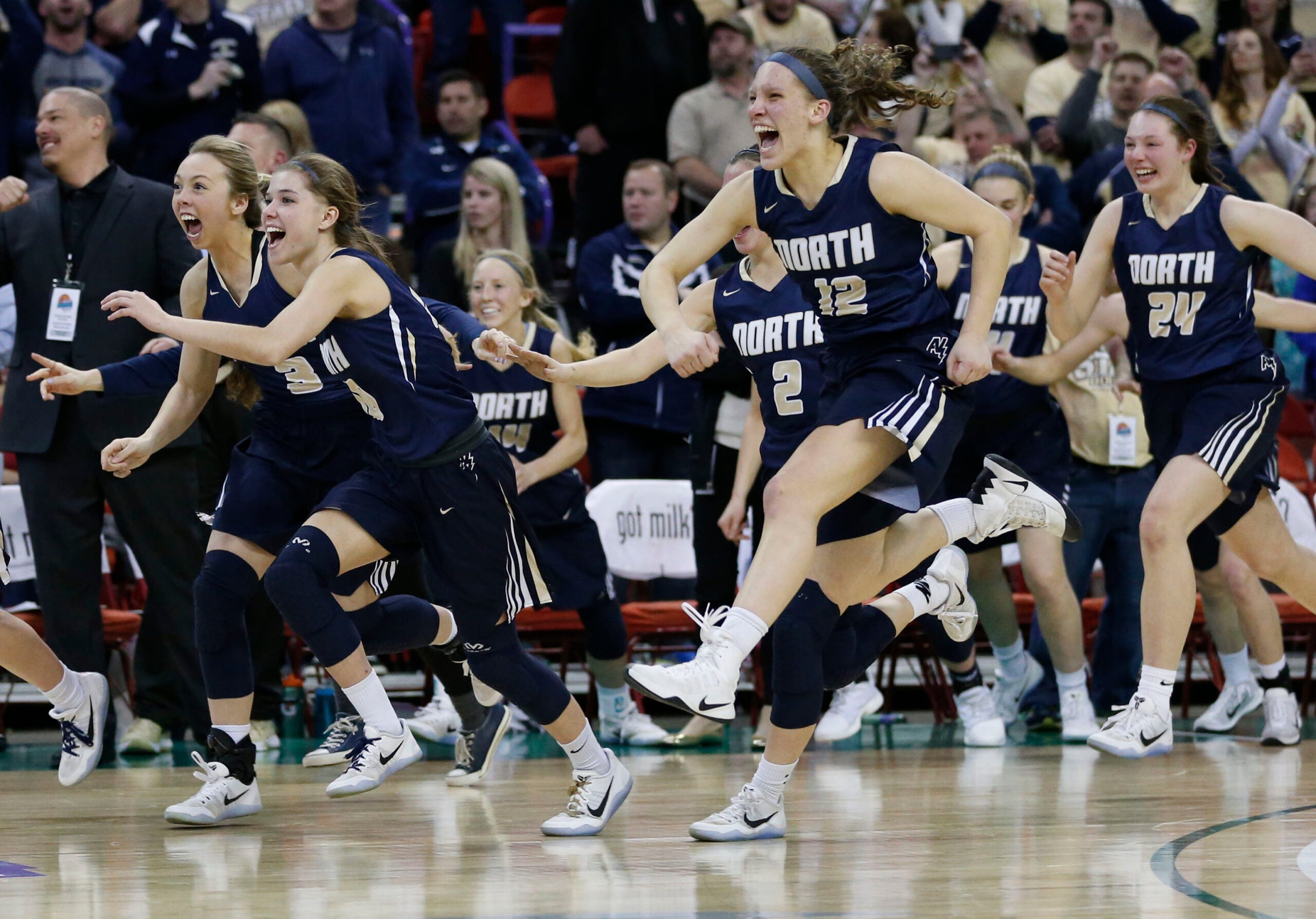University of Iowa women’s basketball superstar Caitlin Clark continued to exert her record-smashing influence at the 2024 WNBA draft on April 15. The televised draft netted an average of 2.45 million viewers, the most ever for that annual event, according to ESPN.
The Indiana Fever WNBA team chose Clark with its first overall pick. She headlined a talented, ultra-popular draft class that included standouts from this college basketball season and March Madness tournament: Angel Reese, Cameron Brink and Kamilla Cardoso.
The NCAA championship game featuring Clark and Cardoso had a peak audience of 24 million viewers in the final minutes, according to Nielsen, making it the most watched basketball game of any kind since 2019.
News with a little more humanity
WPR’s “Wisconsin Today” newsletter keeps you connected to the state you love without feeling overwhelmed. No paywall. No agenda. No corporate filter.
That’s just one example of women’s sports closing the gap with men’s sports in popularity, as well as advertising revenue and ticket sales.
Mary Jo Kane has studied Title IX, women in sports and media coverage for decades at the University of Minnesota. She recently talked with WPR’s “Central Time” about Clark’s impacts and this moment for women’s sports.
The following was edited for clarity and brevity.
Rob Ferrett: What did this year’s NCAA Women’s Basketball Tournament mean for women’s sports?
Mary Jo Kane: I really think that this has taken us to a new stratospheric era, in that we finally have a critical mass of great athletes, great competitors, superstars — supernovas, really, when you talk about Caitlin Clark — you have a critical mass of audience members, male and female, and a critical mass of both TV and mass media that finally gets it. And, of course, corporate sponsorship. We have never been here before.
RF: How big a deal was Caitlin Clark’s college career in generating excitement for the sport?
MJK: Unique, unprecedented. I’ve talked with others about how she’s not just great for women’s basketball but for all of women’s sports and men’s basketball as well. She’s not just a rising tide. She is a tsunami of influence and a tsunami of impact.
I think the other thing about Caitlin Clark is she’s a winner. That’s what Americans love. With the brightest light, on the biggest stage, under the greatest amount of tension and stress, Caitlin Clark wants the ball. And Caitlin Clark for the most part has delivered.
RF: She had good players to play against, and people are looking forward to her competitions, maybe against Angel Reese, and others as they all go pro. The caliber of players seems to be going up.
MJK: One of the great things that has happened to generations removed from Title IX and 1972 is that girls today, for the first time ever, grow up with a sense of entitlement to playing sports. They have access to scholarships, great coaching, conditioning, facilities and competition at a very early age. They’re not used to or willing to settle for hand-me-downs. Every generation, we get bigger, stronger, faster, better.
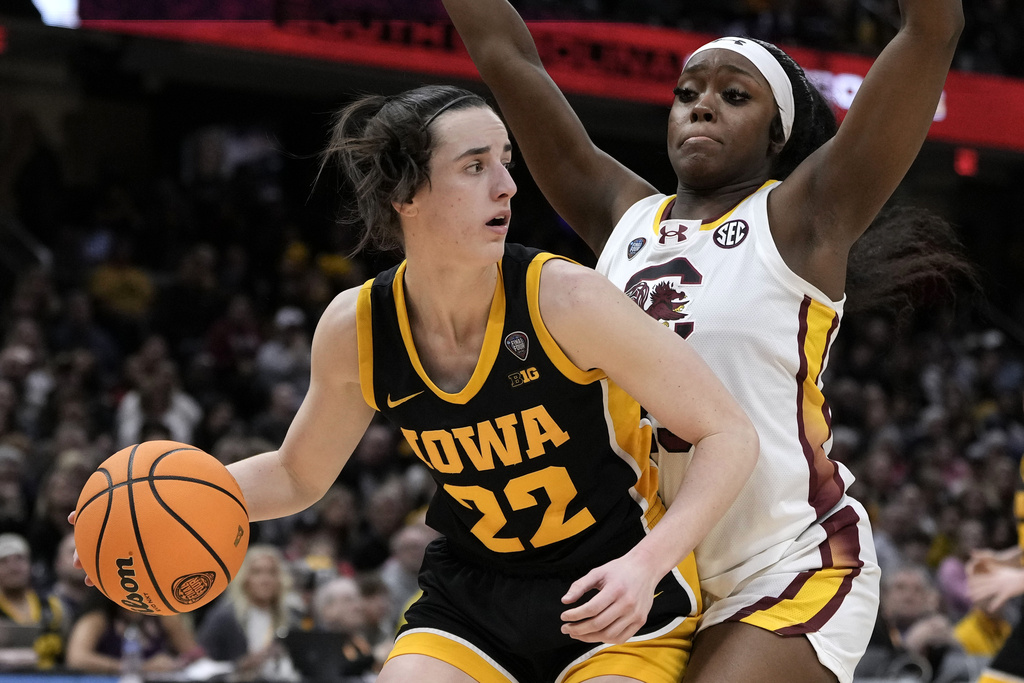
RF: Even as women get the success and the eyeballs on TV screens, are they getting the respect from their own organizations?
MJK: They’re certainly getting more respect than they used to. … Whenever an organization like the NCAA falls short, the response is not, “Don’t complain. Don’t cause trouble. Be happy for what we have.” The reaction is instantaneous to say, “This is not acceptable.”
The other thing happening now that’s never happened before is that female athletes take to social media to let the world, and certainly the NCAA, know their displeasure. They embarrass and, frankly, shame the NCAA into saying, “We will do better.”
RF: Have we broken out of the cycle where media organizations don’t cover women’s sports because they think nobody watches it?
MJK: I certainly hope so. I think this has really shown that there is this vast, untapped, hungry, enthusiastic audience. You are looking at fabulously talented, dedicated, disciplined, committed female athletes.
I think corporate America has also noticed, finally. They’re not doing this out of an altruistic streak. They’re doing it because they realize that it is a tremendous investment for their brand.
The behemoth of sports advertising in this country, State Farm Insurance, signed Caitlin Clark. She is the first college player, male or female, to ever be signed by State Farm.
RF: How does the WNBA benefit from this amazing group of athletes turning pro?
MJK: Here in Minneapolis, we have the Minnesota Lynx, who have won four WNBA titles. I’m already hearing from friends and colleagues saying, “When’s Caitlin Clark gonna be here? When are the Indiana Fever gonna be here?”
People want to see Caitlin Clark. I just don’t think that this is going to be a once-every-four-years phenomenon like the Olympics. I really do think we are at a sea change and a unique moment in women’s sports.
Wisconsin Public Radio, © Copyright 2026, Board of Regents of the University of Wisconsin System and Wisconsin Educational Communications Board.

